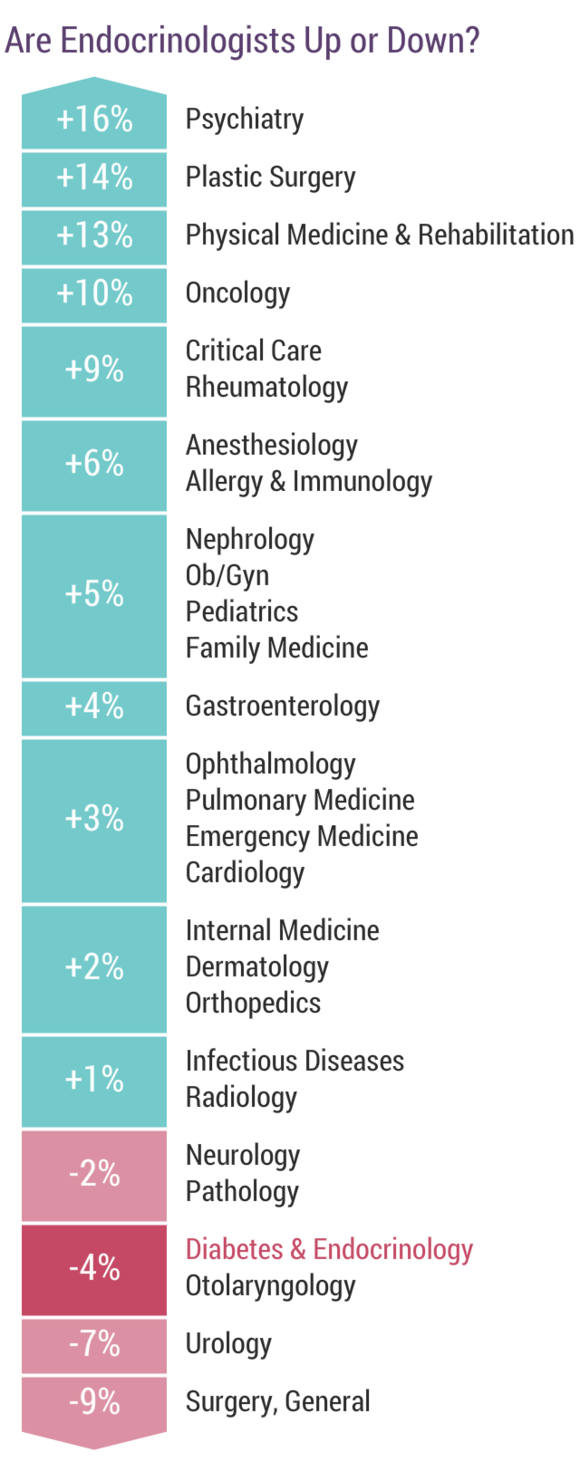Texas Endocrinology: State-of-the-Art Hormonal Health Care
Wiki Article
Navigating the Intricacies of Thyroid Conditions With an Endocrinologist
In this short article, we will discover the value of seeking specialist aid from an endocrinologist when dealing with thyroid problems. We will dive into the understanding of different thyroid problems, the significance of precise diagnosis, and the readily available therapy choices. Additionally, we will certainly discuss the ongoing monitoring and support needed for people with thyroid problems.Comprehending Thyroid Problems
Thyroid disorders can be much better understood with advice from an endocrinologist. The thyroid gland, located in the neck, generates hormonal agents that control different bodily functions. When this gland comes to be underactive or over active, it can cause a series of problems. Hypothyroidism, as an example, happens when the thyroid does not create sufficient hormonal agents, leading to signs such as tiredness, weight gain, and depression. On the various other hand, hyperthyroidism happens when the thyroid produces an unwanted of hormones, leading to signs and symptoms like weight reduction, fast heartbeat, and stress and anxiety.Comprehending thyroid problems calls for an extensive exam of a person's clinical history, physical exam, and laboratory tests. Endocrinologists specialize in the medical diagnosis and treatment of hormonal disorders, consisting of thyroid disorders.
Moreover, endocrinologists know with the most up to date improvements in thyroid research, which allows them to give one of the most effective and current therapy techniques. Texas endocrinology. They can prescribe medicine to manage hormonal agent degrees, recommend lifestyle alterations, and offer advice on handling signs. In even more intricate instances, they might collaborate with various other experts to make certain detailed treatment

Significance of an Endocrinologist
An endocrinologist plays a crucial function in the diagnosis and management of thyroid problems, using specialized expertise and understanding in hormone disorders. With their comprehensive training in the endocrine system, these physician are uniquely certified to treat and analyze thyroid conditions.Among the crucial reasons an endocrinologist is necessary in the administration of thyroid problems is their capability to precisely diagnose the problem. Thyroid disorders can be complicated, with symptoms that might overlap with various other medical problems. An endocrinologist has the knowledge to perform a complete assessment, consisting of a thorough case history, checkup, and specialized examinations to accurately identify the details thyroid condition.
In addition, an endocrinologist is geared up to establish a customized treatment prepare for each specific client. They take into consideration factors such as the type and intensity of the thyroid disorder, the patient's total health, and their preferences. This individualized strategy guarantees that the treatment plan is enhanced for the person's specific requirements, leading to far better end results.
In addition to diagnosis and therapy, an endocrinologist additionally plays an essential function in long-lasting management of thyroid problems. They check the patient's thyroid hormone levels, change medicine does if required, and supply recurring support and education to assist people effectively manage their condition.
Detecting Thyroid Disorders
The endocrinologist's know-how expands to properly detecting thyroid problems via a comprehensive assessment, including a comprehensive case history, health examination, and specialized tests (Endocrinologist in georgetown). This strategy permits the endocrinologist to gather important information about the person's signs, medical history, and household background, which can supply valuable understandings into the potential reasons for the thyroid problemDuring the physical evaluation, the endocrinologist will thoroughly examine the person's neck for any type of signs of swelling or abnormality in the thyroid gland. They may additionally look for various other physical indications, such as changes in hair appearance, skin dry skin, or sticking out eyes, which can be indicative of thyroid problems.
In addition to the case history and physical exam, the endocrinologist might order specific examinations to more assess the feature of the thyroid gland. These tests may consist of blood examinations to measure the levels of thyroid hormonal agents, thyroid-stimulating hormone (TSH), and antibodies that may be linked with autoimmune thyroid disorders. Imaging tests, such as ultrasound or nuclear medicine scans, might also be done to analyze the size, shape, and structure of the thyroid gland.
Therapy Alternatives and Administration
The selection of treatment depends on the specific see here kind and intensity of the thyroid condition, as well as private client elements. In cases of hypothyroidism, where the thyroid gland does not produce adequate thyroid hormonal agents, the most usual therapy is hormone replacement treatment.For hyperthyroidism, where the thyroid gland produces extreme amounts of thyroid hormonal agents, therapy choices include medicines, radioactive iodine treatment, or surgery. Drugs, such as beta blockers, can be suggested to handle symptoms and minimize the production of thyroid hormonal agents.
Along with these traditional treatments, there are also alternate therapies that some individuals may consider, such as natural supplements, acupuncture, or dietary adjustments. Nevertheless, it is essential to note that these alternate treatments useful site ought to be discussed with an endocrinologist to ensure they are efficient and safe.
Long-Term Treatment and Support
Long-term care and support for people with thyroid problems involves continuous tracking and personalized treatment plans offered by an endocrinologist. After a preliminary medical diagnosis and therapy, it is essential for individuals to proceed obtaining routine follow-up care to ensure that their thyroid feature remains stable and that any type of potential problems are determined and resolved quickly.
Regular monitoring of thyroid hormonal agent levels with blood tests permits the endocrinologist to analyze the performance of the therapy strategy and make any kind of required changes. This close monitoring also enables the very early discovery of any kind of modifications over here in thyroid feature and the identification of potential regressions or difficulties, such as the growth of blemishes or the progression of thyroid cancer. Relying on the details demands of the individual, tracking may take place every couple of months or on an annual basis.

Final Thought
To conclude, browsing the intricacies of thyroid conditions needs the know-how of an endocrinologist. These experts play an important role in detecting and handling thyroid conditions, guaranteeing ideal therapy options are given. With their understanding and experience, endocrinologists can provide long-term treatment and support to people with thyroid conditions. By looking for the assistance of an endocrinologist, patients can get the needed care and monitoring to efficiently browse their thyroid disorder.
Report this wiki page